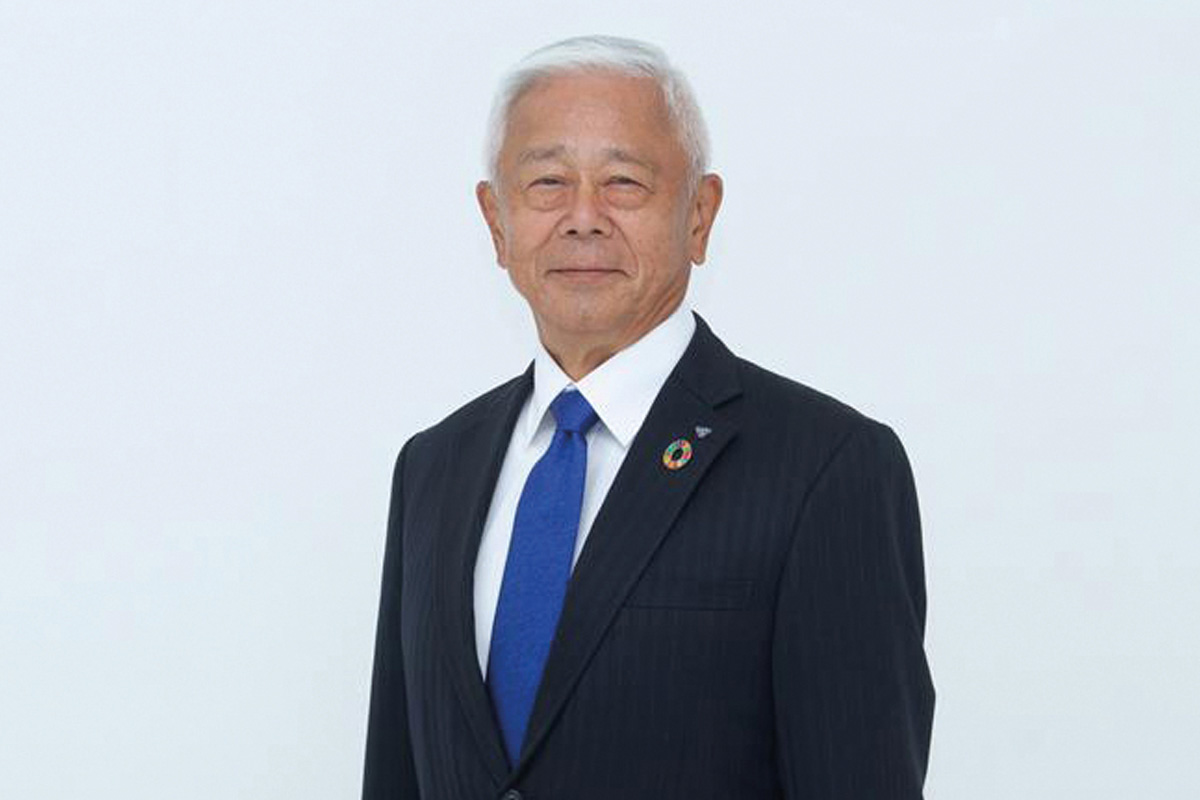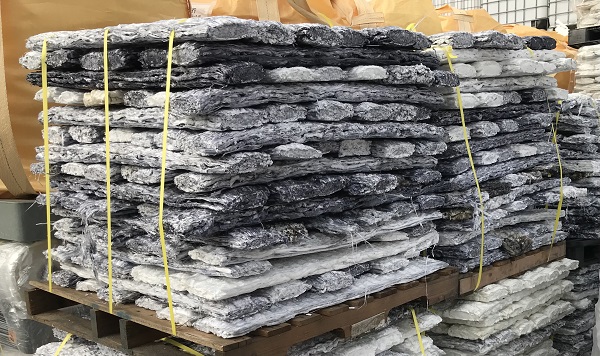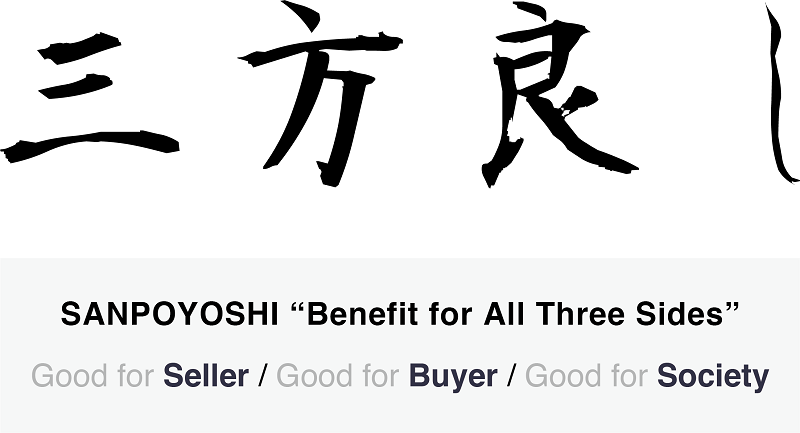Established in 1996, Pantech is a Japanese company that provides comprehensive waste plastic recycling services. It specializes in collecting plastic scrap generated by the consumer goods industry, before converting it into recycled plastic raw material and distributing it domestically and internationally. They recently opened their Circular Design Center (CDC) last year on December 8th in order to comply with the increasing quality demands of the global market.

It is our view that Japan is at a very exciting time for manufacturing. On one hand, we have had major supply chain disruptions in the last three years, caused by the COVID-19 pandemic as well as tension from the China-US decoupling situation. As a result, we are seeing many multinational groups try to diversify their supply chains with a focus on reliability. This is where Japan can enter; a country known for decades of high reliability, trustworthiness, and short lead times when it comes to production. Now, with a depreciated JPY, it is our view that there’s never been a more opportune moment for Japanese manufacturers to meet the pressing needs of this macroeconomic environment. Do you agree with this premise, and why or why not?
I do broadly agree with your sentiment, and for the past three years supply chains have been heavily disrupted by COVID-19. Every single country across the globe faced significant delays. In the current landscape, every enterprise is confronted with the complexities of supply chain management. Within this framework, it is posited that the corporations capable of adapting to the requisite alterations and transformations will be those most likely to prevail over the ensuing three to five years.
If you are a company that is only focused on exports right now I feel that you can gain certain advantages in the economic environment as you outlined in your question. However, if you are the kind of company that relies on imports, the weakened JPY is going to put you in a disadvantageous position. Going forward there are going to be a lot of uncertainties in terms of the costs of raw materials, electricity, and labor costs.
You mentioned survival there, and the next three to five years is going to be very important for many companies. One thing that is threatening companies, especially in Japan, is of course Japan’s demographic situation. It is the oldest society in the world with a rapidly shrinking population. In fact, one in three workers is above the age of 65, and this has drawn the attention of the Japanese government earlier this year with Prime Minister Kishida stressing the severity of the situation. This demographic situation is creating two clear problems; a labor crisis and a shrinking domestic market. What have been some of the challenges your company has experienced due to this demographic shift and how have you been reacting to them?
The diminishing population in Japan holds profound implications. As the demographic ages, it is anticipated that there will be a substantial reduction in the available workforce within the nation. Data from the esteemed Research Institute of Japan's Population indicates a projection that by 2070, the population will decline to fewer than 87 million individuals, representing a 30% decrease. Given these circumstances, it becomes imperative to contemplate strategies to sustain the labor force in Japan.
From the Japanese government’s perspective, it is very important to strengthen the immigration policy. At our company, we have been actively hiring foreign laborers, and this has been the case ever since we were founded. Thanks to the Japanese government's efforts, the immigration policy has gained a lot of steam and has a lot of advantages for foreigners. It is a country that is held in wide regard by foreigners, and it is among some of the top countries in the world to live in for foreigners. The government isn’t stopping here either since they plan to continue to improve their immigration policies in the future.
Contemplating the continuous nature of time, it becomes evident that at any given moment, individuals are commencing their work duties across various time zones globally. In Japan, our workday commences in the morning and concludes eight hours later, yet concurrently, elsewhere, individuals are initiating their work shifts. With this understanding, we have shaped our employment policies to embrace a diverse and inclusive approach, and already have adopted a more globalized employment paradigm.
Europe is known worldwide for its strict environmental regulations, a sector that you are heavily involved in. If we look at Japan from a foreigner’s perspective, it has this perception of very strong policies for recycling, environmental friendliness, and carbon neutrality. If we look at the energy sector, Japan is really pushing its renewables, and former Prime Minister Suga has said that Japan must be carbon neutral by the year 2050. However, we have spoken to many companies that have aired their frustrations when it comes to the lack of a solid framework and collaboration between the government, manufacturing companies, and recycling firms in order to realize this environmental and carbon-neutral vision. For example, Japanese industrial standard products produced from recycled materials are still extremely limited. What is your analysis of Japan’s recycling sector and what are some of the obstacles to its improvement?
Back in 2019, one French company released a report on research for plastic and people’s awareness from different perspectives. The first question asked was whether plastic manufacturers should be responsible for recycling and reusing plastic. 80% of the global companies said “yes”, yet in Japan, only 57% of companies said “yes”. As you can see, the reality is that Japanese people are less aware of the need to recycle plastic. This French company also asked if we should get rid of disposable plastic, within this survey 70% of the people globally said “yes”, whereas in Japan only 38% said “yes”.
The third question posed was regarding the preference for eco-friendly products; globally, 75% of respondents affirmed this preference, whereas in Japan, only 53% did so. This trend continued with subsequent questions posed by the firm, revealing a pattern indicating Japanese individuals' reduced receptivity towards recycled plastic.
Japanese people have been raised on mass consumption and mass production, which in turn has resulted in mass waste. In 2021, the Japanese government actually gave people the opportunity to reflect on how they use plastic and I think now, slowly, Japanese manufacturers are becoming more aware of the importance of plastic recycling.
Large manufacturers are actively disclosing their initiatives and their SDG activities. They are explaining them to their shareholders because investors are now becoming quite strict regarding environmental strategies. I think this opportunity for reflection is a valuable one.

Lastly, I would like to mention the fact that Japan traditionally is a very vertical society in almost every aspect. Whether it is politics, economy, or work, which makes our country in general not good at making horizontal collaboration. With the new plastic laws being implemented I believe this is a good motivation for horizontal collaboration.
This theme of collaborations is one that is very prevalent among our interviews here in Japan, with many firms taking advantage of collaborations and partnerships as a way to grow their businesses and penetrate new markets. Your company in particular works with roughly 100 processing plants within Japan and overseas. Are you looking for more collaborative partners in overseas markets?
First, I would like to add some comments. I would like to let you know that our company’s mission is to restore the national supply chain which has been separated for us to improve plastic recycling rates. There are four stages for recycling: waste collection, recycling, delivery, and end user.
The new laws for plastic recycling gave the guidelines for organizing the tasks for each phase, giving responsibility to companies involved in each phase. With the implementation of this law, there is no doubt that we have been given an opportunity for reflection. To smooth out this flow and eliminate waste I believe that communication and the delivery of information are very important. For example, when plastic is wasted you need a lot of information on that plastic. This information includes the type of resin, the additives, the shape, and the color. It is imperative to comprehend this information in the upstream process. Nonetheless, achieving this understanding can be challenging, given that corporations often prefer to safeguard confidential data. Consequently, disseminating such information to other enterprises becomes intricate. Given the Japanese emphasis on superior quality, there is a proclivity to produce intricate materials or products that amalgamate diverse materials. This complexity occasionally results in products that pose challenges in recycling.
Recently we have seen a growth in the opportunities to work with the people involved in the development departments at companies that produce waste. By working together with those departments, we have been able to come up with packaging solutions for recycling and the development of materials that can be easily recycled. Here you can see the importance of working together with the people upstream.
Subsequent to this collection lies a pivotal phase. Waste generated at the production facility or post-consumption necessitates redirection upstream or integration into a recycling system. This principle underscores the way our organization emphasizes collaboration and co-creation.
We do have operations in several areas around Asia where we are working together with local partners. These partners also do have occasional issues with the security of laborers and the cost of electricity. In order to collect waste, they need human resources, vehicles, and facilities, but we often find that these aspects don’t match the needs. Also, they are not running their businesses very well, but we have a database for this aspect where we can analyze their location, facilities, and human resources, thus we can easily find out their strengths. We are then able to match manufacturers with recyclers in terms of location, creating an efficient partnership strategy. I think that this is one of our company’s key strengths.
Plastic has a lot of different types, from general-purpose resins such as PET and PP, all the way to engineering plastics such as CFRP. There are many different types of plastic waste that come from companies, so we have developed various solutions for the collection of these different plastics. We are also able to arrange partnerships with nearby recycling facilities for these companies, and this is an important point of our partnership strategy.
As we increase the number of partnerships we have, we can also increase the volume of recycling that we can do. This will grow our business and ultimately lead to further contributions to the environment. Without the support of our partners, we cannot continue to maintain our business. Our role is to be a matching point between suppliers, users, and recyclers.
Japanese manufacturers are often obsessed with quality, meaning that products produced in the domestic market are over-spec. I believe that is one of the reasons why we find it difficult to recycle or promote a circular economy in this country. That is why we say it is very important to continue conducting dialog with manufacturers as well as speak on behalf of recyclers. Creating equal footing between manufacturers, users, and recyclers is our job and our business model relies on creating matching points.
We know that your firm continues to conduct business in 25 countries on different continents. Moving forward, which countries or regions do you believe have the most potential for the future growth of your firm? What strategies will you employ for further expansion overseas?
Regarding cooperation with foreign countries, up until 2017, more than 80% of recycled plastic generated in Japan was supported by the global demand, so because of that we have a lot of partners abroad. Actually, you can find a lot of companies overseas, especially USA and EU, with advanced recycling technology, far better than those found in Japan. This is why we have a lot of partnerships for technology all over the world for plastic recycling.
As for our international strategy we place importance on long-term partners, so to that end we are looking to Asian countries in the ASEAN region. We would like to promote even more cooperation with Asian countries. If we look at commodity production, a lot of Japanese companies have moved their production sites to other countries, and this is especially true in Asia. The same goes for Europe, and if we look into European plastic production, 50% is done in Asia. We must focus on local production and local consumption of recycled products, and we believe this is needed in Asia more than any other region. There is a lot of potential in this region for recycled products.
With regard to Europe, it is imperative to remain vigilant of the environmental policies instituted by the European Union. Consequently, we are compelled to fortify our affiliations with European corporations continuously.
We recently have strengthened a partnership we have with a European company for collaborating in the waste collection operation for a PET Bottle recycling plant in Okayama, Japan. For industrial PET waste that comes from convenience stores or other sources, most are exported to other countries for recycling, but we are trying to partner with more recycling plants for the domestic market here in Japan. In my opinion, this represents the quintessential approach to fostering collaborations, and increasingly, we are observing analogous opportunities for such cooperative endeavors.
When it comes to DX, Japan is well known for its manufacturing and automation, however, when it comes to digital tools the country is well known for being quite slow at adoption. It ranked 29th in recent digital competitiveness rankings and the former Prime Minister Suga’s administration created a digital agency to promote the adoption of digital and ICT-based solutions. We know that you have a vision for using these technologies in robotics in order to achieve the recycling society of the future. How has DX influenced your recycling operations and what synergies do you see between robotics and the industrial automation sector when it comes to recycling?
It is true that Japan is slow to adopt digital technologies and I think the same goes for this particular industry. We possess advanced information technologies in traceability, and when looking at the operation side we see that often everything is done manually. From the measuring of the material to the entry of data, I do believe that digital technologies are going to permeate at some point in the future. Unfortunately, the reality as we stand today is that manual operations still have not been automated yet.
As of the next phase, we are promoting the establishment of a database regarding materials, especially plastics, as often important information in terms of traceability can be missing. “Kairo” constitutes the denomination of this database, and our organization has inaugurated its proprietary version thereof. To orchestrate this database, we are conducting visits to companies generating waste nationwide. Essentially, we are meticulously examining all accessible plastic waste with the objective of aggregating exhaustive data concerning the materials utilized and subsequently integrating this information into the database. This procedure enables us to discern the competencies of recycling partners as well as the inherent advantages of specific materials. Via this system, we can also devise strategies to bridge the discrepancies between recycling objectives and actual recycling metrics for enterprises producing plastic waste.
Once this database is ready, users will be able to access information such as the origin of raw materials used in certain plastic products. I think it is going to benefit users greatly. Our target is essentially a fusion between physical and digital.
Imagine that we come back in three years' time and have this interview all over again. What goals or dreams do you hope to achieve by the time we come back for that new interview?

This is the word Sanpo Yoshi, the management philosophy for Pantech originally created by Omi Merchants in Japan starting from the Edo Period. It means creating benefits for all three sides; the seller, the buyer, and society. Pantech seeks the greatest possible benefits for itself, waste-producing companies, and its partner plants in order to contribute to society and sustainability. This word has been our corporate philosophy ever since we were founded. This year we will enter our 28th anniversary and still, we stick to this philosophy; valuing client’s or partner’s benefits over our own profits.
0 COMMENTS